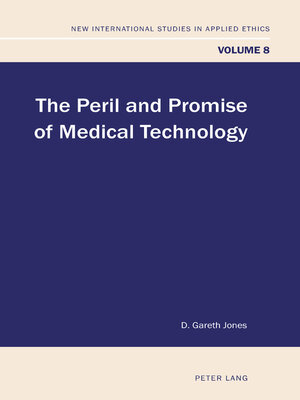The Peril and Promise of Medical Technology
ebook ∣ New International Studies In Applied Ethics
By John R. Elford

Sign up to save your library
With an OverDrive account, you can save your favorite libraries for at-a-glance information about availability. Find out more about OverDrive accounts.
Find this title in Libby, the library reading app by OverDrive.



Search for a digital library with this title
Title found at these libraries:
| Library Name | Distance |
|---|---|
| Loading... |
Medical technology is one of the most powerful forces in the modern world, with enormous opportunities for good. For many in affluent countries, the expectations of what constitutes the good life have been transformed, as neonatal mortality rates have declined, life expectancy has increased, and one disease after another has been defeated. However, it is not an unalloyed blessing, as social patterns have been transformed, family structures have been challenged, and ordinary people as well as health professionals and scientists confront novel ethical dilemmas.
Gareth Jones writes not only as a scientist and bioethicist but also as a Christian. His aim is to make sense of some of the myriad issues encountered in a world dominated by medical technology. These include manipulation at the earliest stages of embryonic human life, through to ageing and attempts at bringing about physical immortality. The perceived power of genes is critically examined, as are claims that morality can be enhanced using technology. The centrality of the brain for making us what we are is sympathetically examined, against the backdrop of the ongoing debate on dualism and physicalism. Acknowledging our ever-increasing dependence upon medical technology, the author explores ways in which we can live in hope rather than fear.
Gareth Jones writes not only as a scientist and bioethicist but also as a Christian. His aim is to make sense of some of the myriad issues encountered in a world dominated by medical technology. These include manipulation at the earliest stages of embryonic human life, through to ageing and attempts at bringing about physical immortality. The perceived power of genes is critically examined, as are claims that morality can be enhanced using technology. The centrality of the brain for making us what we are is sympathetically examined, against the backdrop of the ongoing debate on dualism and physicalism. Acknowledging our ever-increasing dependence upon medical technology, the author explores ways in which we can live in hope rather than fear.







